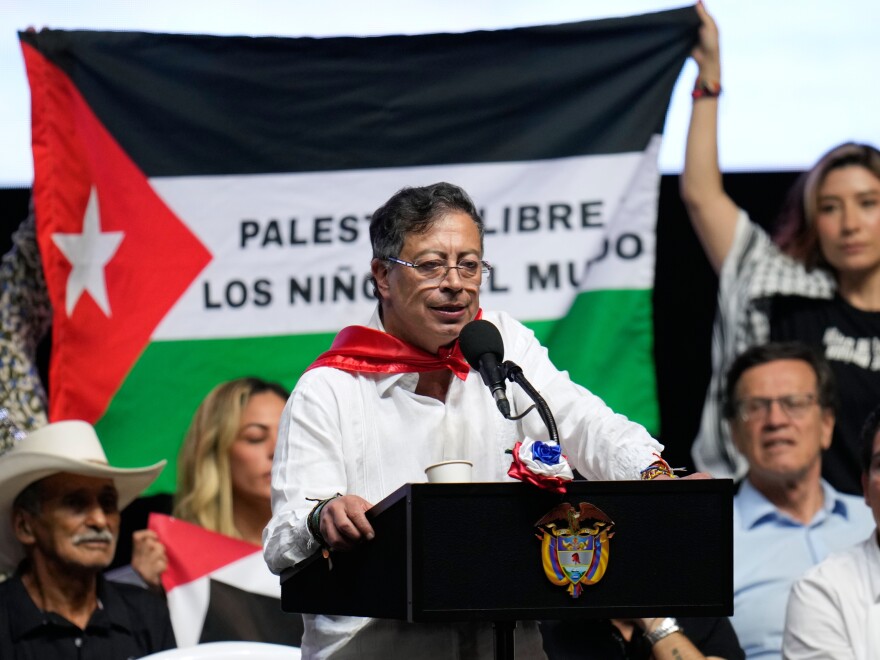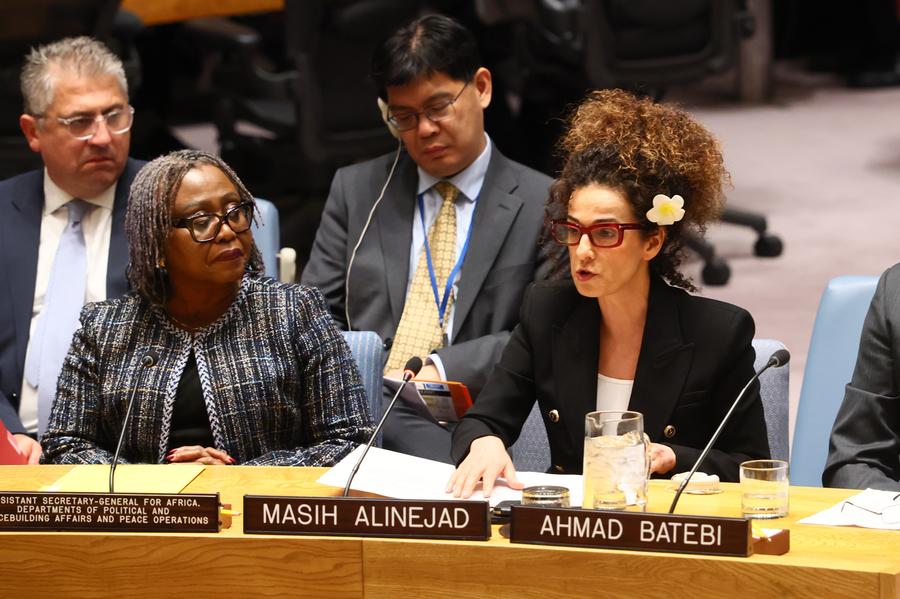
The United States will significantly reduce its financial aid to Colombia and implement tariffs on Colombian exports, as tensions escalate between the two nations over the drug trade. President Donald Trump announced these measures on March 15, 2025, criticizing Colombian President Gustavo Petro for failing to curb drug production in the country, which is the world’s largest cocaine exporter.
In a statement via social media, Trump labeled Petro as “an illegal drug leader” and described him as “low rated and very unpopular.” He warned that Petro needed to take decisive action against drug operations or face U.S. intervention. Trump later reiterated his stance to reporters aboard Air Force One, claiming Colombia has “no fight against drugs” and calling the country a “drug manufacturing machine.”
On the same day, Defense Secretary Pete Hegseth announced a recent U.S. military strike targeting a vessel reportedly linked to the Colombian rebel group, the National Liberation Army (ELN), which has been involved in ongoing conflicts with Petro’s administration. Hegseth shared a video clip of the vessel ablaze after an explosion but did not provide evidence to substantiate his claims.
In response, Petro rejected Trump’s accusations and defended his administration’s efforts to combat narcotics. “Promoting peace in Colombia is not being a drug trafficker,” he stated, suggesting that Trump was misled by his advisors. He reiterated his commitment to fighting drug trafficking, calling himself “the main enemy” of drugs in Colombia.
The Colombian Foreign Ministry condemned Trump’s remarks as a “direct threat to national sovereignty,” while Defense Minister Pedro Sánchez pointed out that Colombia has dedicated significant resources and lost lives in the battle against drug trafficking.
Trump’s latest comments indicate a potential escalation of tensions in Latin America, especially as the U.S. has intensified pressure on neighboring Venezuela and its leader, Nicolás Maduro. American naval forces, fighter jets, and drones have been deployed in the region, described by the administration as part of an “armed conflict” against drug cartels.
Colombia has historically been a vital U.S. ally, receiving approximately $230 million in aid in the fiscal year ending September 30, 2025, a significant decrease from previous years when aid surpassed $700 million. The United Nations reported that coca cultivation reached an all-time high last year, exacerbating the situation.
Petro and Trump have clashed multiple times since the beginning of the year. Earlier disputes arose over U.S. military flights for deported migrants, leading Trump to threaten tariffs. In September 2025, the Trump administration accused Colombia of failing to cooperate in the fight against drugs, although sanctions that could have triggered aid cuts were waived.
The tensions reached a boiling point when Petro accused the U.S. of committing an assassination during a military strike on September 16, 2025. He claimed that a Colombian fisherman named Alejandro Carranza was killed, asserting that Carranza had no connection to drug trafficking. “The United States has invaded our national territory, fired a missile to kill a humble fisherman,” Petro stated, emphasizing the destruction of Carranza’s family.
Despite Petro’s criticisms, his government plans to prosecute a Colombian survivor of a recent U.S. strike on a submersible allegedly carrying drugs. Another survivor was returned to Ecuador and will not face charges, as determined by local prosecutors. The ELN, which has denied involvement in drug trafficking, did not respond to Hegseth’s announcement regarding the military strike.
Since early September, there have been seven U.S. military strikes in the region aimed at targeting alleged drug traffickers, resulting in at least 32 fatalities. Trump expressed frustration with the ongoing drug smuggling and declared an end to payments and subsidies to Colombia, stating, “These payments will no longer be made.”
Elizabeth Dickinson, a senior analyst for the Andes region at the International Crisis Group, criticized the U.S. decision to alienate its strongest military partner in Latin America. She noted that the longstanding relationship between Washington and Bogotá is at risk, which could lead to catastrophic consequences.
The potential cuts to U.S. funding further threaten military cooperation and efforts to combat rebel groups in Colombia. Dickinson warned that reducing support would significantly diminish the capabilities of the Colombian military and police as they confront a major security crisis.
As the situation evolves, the focus remains on the implications of these diplomatic tensions for both Colombia and the United States, as well as their broader impact on regional stability.






